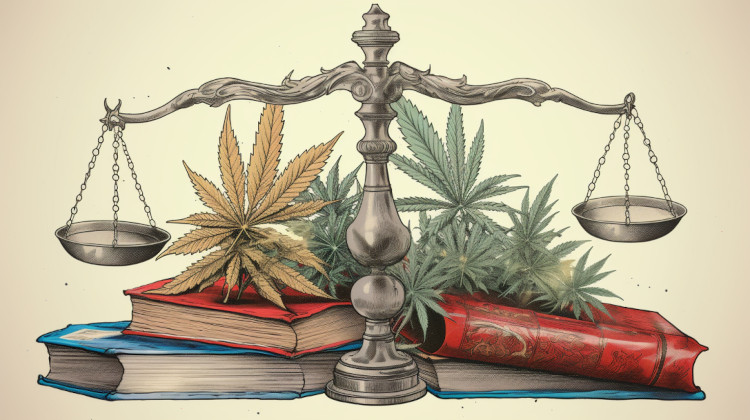Congress has extended the 2018 Farm Bill for one year as part of a government spending measure, putting on hold efforts to regulate hemp-derived cannabinoids in a new five-year bill. The extension marks the second time the bill has been given new life as negotiations on replacement legislation will continue next year.
On December 17, congressional leaders released a 1,547-page spending bill that will fund the federal government until March 14. Congress approved a version of the stop-gap measure on Saturday, narrowly averting a government shutdown that would have come only days before the Winter holidays.
Spending Bill Extends 2018 Farm Bill
The spending bill includes a provision to grant another one-year extension to the 2018 Farm Bill, which legalized hemp agriculture in the United States. Normally up for review and reauthorization every five years, the 2018 Farm Bill was first extended in 2023 after Congress failed to come to a consensus on a new bill. The extensions maintain a loophole on intoxicating hemp products such as delta-8 THC and THCA, which have gained popularity among cannabis patients and consumers over the past five years.
House Agriculture Committee Chairman Glenn “GT” Thompson, a Pennsylvania Republican, released a statement on the spending bill, noting it includes funding to help ailing farmers.
“The bill released this evening provides much-needed relief for agriculture, including $10 billion in emergency economic aid, which will help address the significant losses incurred due to both weather and market-related issues,” Thompson said. “This addition of economic support is an important financial bridge, one that will help mitigate the severe downturn in the agricultural economy.”
The 2018 Farm Bill legalized hemp products and hemp agriculture, defining the crop as cannabis plants with no more than 0.3% delta-9 THC, the cannabinoid most commonly associated with the intoxicating effects of cannabis. The legislation has led to a proliferation of products with other intoxicating cannabinoids including THCA and delta-8 THC under what many see as a loophole in the bill.
Attempts To Regulate Hemp Cannabinoids Fail in 2024
In May, a draft of a new Farm Bill from Republicans in the House of Representatives included an amendment from Rep. Mary Miller of Illinois that would have changed the federal government’s regulation of hemp and intoxicating cannabinoids from the plant. Under the bill, THCA, which converts to delta-9 THC when heated by smoking or vaping, would be included in the legal definition of hemp. Jonathan Miller, general counsel for the trade group the U.S. Hemp Roundtable, said in June that the amendment would likely decimate the country’s hemp industry.
“Contrary to advocate pronouncements that their goal is ‘to close the Delta-8 THC loophole,’ the Mary Miller Amendment would ban 90-95% of all ingestible hemp products in the marketplace — including the vast majority of non-intoxicating, wellness-improving CBD supplements – while wreaking havoc for US hemp farmers, including fiber and grain, by redefining hemp in a matter that would make most crops non-compliant with a new THC standard,” he wrote in a statement from the group.
In November, Senate Democrats released their own draft of a 2024 Farm Bill that also attempted to close the loophole for intoxicating cannabinoids. Under the proposal, the 0.3% limit would apply to “total THC” rather than only delta-9 THC, bringing THCA and some other intoxicating cannabinoids under regulation.
With neither proposal for a new five-year bill gaining approval, the one-year extension of the 2018 Farm Bill leaves the loophole on intoxicating hemp cannabinoids in place. The news was welcomed by hemp advocates, who feared that tighter regulation would threaten the industry.
“This is big for the hemp industry because if the farm bill was going to be revisited this year, then there was a potential that novel cannabinoids, including THCA, would be banned,” attorney Paula Savchenko, founding partner of Cannacore Group, told Cannabis and Tech Today. “Now the hemp industry can continue to produce and distribute these types of products, allowing for more variety of products for customers.”
Learn more about your state's cannabis laws and regulations. And sign up for NuggMD's Weekly Sesh newsletter for the latest cannabis news, consumer tips, and recommendations.
The information in this article and any included images or charts are for educational purposes only. This information is neither a substitute for, nor does it replace, professional legal advice or medical advice, diagnosis, or treatment. If you have any concerns or questions about laws, regulations, or your health, you should always consult with an attorney, physician or other licensed professional.



